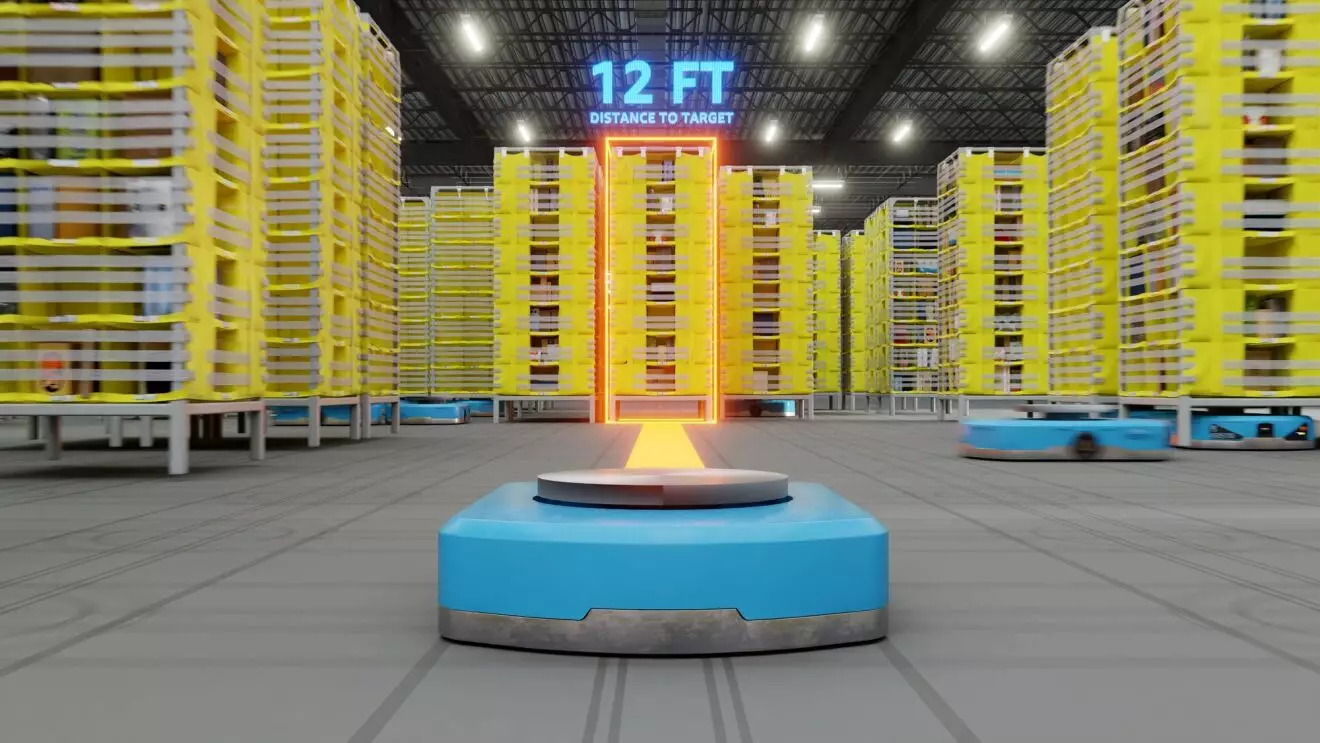Amazon’s aggressive embrace of robotics underscores a paradigm shift in global logistics. With over a million units deployed over more than a decade, the company’s automation journey suggests an ambitious vision: redefine warehousing and delivery through relentless technological innovation. This scale not only signifies operational efficiency but also hints at a future where human roles evolve from manual labor to strategic oversight. The deployment of cutting-edge AI-driven robots like Vulcan — equipped with tactile sensors and self-improving capabilities — exemplifies Amazon’s commitment to building a fully integrated, intelligent fulfillment network. While critics might see this as a negative displacing human workers, the reality is more nuanced: automation appears to be elevating human roles, allowing workers to focus on tasks requiring judgment and problem-solving rather than repetitive lifting and sorting.
Automation’s Impact on Workforce Dynamics
The narrative of robots replacing humans has been popularized, often skewing perceptions with dystopian overtones. However, Amazon’s data and anecdotal reports paint a different picture: automation is not obliterating jobs but reshaping them. Workers previously engaged in physically demanding, monotonous tasks are transitioning into higher-value roles, often with better pay and more skill requirements. Neisha Cruz’s story exemplifies this shift. Initially tasked with picking items, she was retrained and now oversees robotic functions, earning significantly more. Such transformations suggest a symbiotic relationship between humans and robots, where AI and automation handle the heavy lifting, and humans provide oversight, decision-making, and adaptability. This model could serve as a blueprint for future industries, demonstrating that technological advancement need not be a zero-sum game of job loss.
Progress, Efficiency, and Ethical Considerations
Amazon’s latest innovations, including their generative AI platform DeepFleet, showcase their drive for hyper-efficient operations. Improving robotic movement by a mere 10% might seem incremental, but in the world of logistics, such gains translate into billions of packages delivered faster and more cheaply. These improvements ripple through the entire supply chain, reducing costs and increasing consumer satisfaction. Yet, beneath these numbers lies a layer of ethical and societal questions. How will these rapid automation strides affect employment quality? Are workers being truly supported in their transitions? There is a risk that automation accelerates economic separation — favoring those with technical skills while marginalizing low-skill laborers. Nonetheless, Amazon’s stance that bots augment human roles rather than replace them entirely is an optimistic, if somewhat optimistic, viewpoint. The durability of that promise remains to be tested as AI develops further.
The Future of Retail Logistics: A Double-Edged Sword
Looking ahead, Amazon’s trajectory suggests an unstoppable march toward full automation dominance. The robotic fleet, now numbering in the millions, exemplifies a wholesale shift to a machine-centric fulfillment ecosystem. Such dominance could redefine industry standards, forcing competitors to chase Amazon’s technological lead. But this future is complex. While efficiency and cost reduction are undeniable benefits, the societal implications are profound: job displacement in certain sectors, potential resilience issues if systems fail, and the risk of technological monopolization. As consumers and workers alike navigate this new landscape, it’s crucial to question whether automation serves broader societal interests or if it primarily benefits corporate bottom lines. Amazon’s example makes it clear: automation is not merely a tool but an influential force shaping the economy — for better or worse.
Embracing Change with Critical Insight
In my assessment, the ultimate takeaway from Amazon’s automation strategy is that technological evolution is inevitable, but its societal impact depends heavily on how we choose to implement and regulate it. Robots won’t replace all human labor, but they will redefine work itself — demanding new skills, new roles, and perhaps new ways of thinking about employment and prosperity. Progress should be embraced, but with vigilance. Ensuring that automation complements human efforts rather than diminishes them requires thoughtful policies, ongoing training, and a commitment to equitable growth. Amazon’s journey offers insights not just into logistics but into the broader challenge of integrating advancing technology responsibly into our social fabric. Without critical oversight, the promise of smarter, faster, cheaper delivery could come with hidden costs that we are ill-prepared to face.

